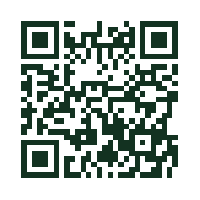Abstract
Communication is very important in our daily lives. It is the most common everyday activity and it is at the core of all human contact. It permeates every aspect of who we are and what we do, and is a highly complex human phenomenon. The ability to communicate is a gift from God to enable us to develop relationships with others and to create culture. Studying and theorising about communication will enable us to discover ‘serviceable insights’ to help us to become good stewards of everything that God has entrusted to us. The Bible gives us a grand historical narrative of the cosmos, helping us to understand the fact that God created the world and its people. This article argued that the Creation-Fall-Redemption motif or theme, which is a highly schematised version of the Bible’s grand narrative, could be used as a framework to help us understand and teach communication from an integrated Christian perspective. The clarion call is to redeem communication so that it can be appropriately used directionally for what is true, noble, right, pure, lovely and admirable (Phlp 4:8). As far as communication is concerned, integration of faith and learning should encompass what we teach (content), how we teach that content (pedagogy), and how what we teach impacts the way we think, what we believe, and how we live (our character).Menslike kommunikasie herbesoek – ’n Bybelse perspektief. Kommunikasie is baie belangrik in ons daaglikse lewens. Dit is die mees algemene alledaagse aktiwiteit en vorm deel van die kern van alle menslike kontak. Dit deurdring elke aspek van wie ons is en wat ons doen en is ’n hoogs-komplekse menslike fenomeen. Die vermoë om te kommunikeer is ’n geskenk van God wat ons in staat stel om verhoudings met ander te ontwikkel en kultuur te skep. Die bestudering en teoretisering oor kommunikasie sal ons in staat stel om ‘diensbare insigte’ te ontdek, wat ons sal help om goeie rentmeesters te wees van alles wat God aan ons toevertrou het. Die Bybel gee aan ons ’n uitgebreide historiese narratief van die kosmos wat ons help om te verstaan dat God die wêreld, asook die mens geskep het. Hierdie artikel het geargumenteer dat die Skepping-Sondeval-Verlossingstema of –motief, wat as ’n hoogs- geskematiseerde weergawe van die Bybelse uitgebreide narratief beskou kan word, as ’n raamwerk kan dien om ons te help om kommunikasie vanuit ’n geïntegreerde Christelike perspektief te verstaan en te onderrig. Die wekroep is om kommunikasie vry te maak sodat dit rigtinggewend en gepas gebruik kan word vir wat waar, rein, regverdig, lieflik en loflik is (Fil 4:8). Wat kommunikasie betref, behoort die integrasie van geloof en leer te omsluit wat ons onderrig (inhoud), hoe ons die inhoud onderrig (pedagogie), asook die wyse waarop dit wat ons onderrig ons denke, ons geloof en hoe ons leef (ons karakter) beïnvloed.
Copyright information
- Ownership of copyright in terms of the Work remains with the authors.
- The authors retain the non-exclusive right to do anything they wish with the Work, provided attribution is given to the place and detail of original publication, as set out in the official citation of the Work published in the journal. The retained right specifically includes the right to post the Work on the authors’ or their institutions’ websites or institutional repositories.
Publication and user license
- The authors grant the title owner and the publisher an irrevocable license and first right and perpetual subsequent right to (a) publish, reproduce, distribute, display and store the Work in any form/medium, (b) to translate the Work into other languages, create adaptations, summaries or extracts of the Work or other derivative works based on the Work and exercise all of the rights set forth in (a) above in such translations, adaptations, summaries, extracts and derivative works, (c) to license others to do any or all of the above, and (d) to register the Digital Object Identifier (DOI) for the Definitive Work.
- The authors acknowledge and accept the user licence under which the Work will be published as set out in https://creativecommons.org/licenses/by/4.0/ (Creative Commons Attribution License South Africa)
- The undersigned warrant that they have the authority to license these publication rights and that no portion of the copyright to the Work has been assigned or licensed previously to any other party.
Disclaimer: The publisher, editors and title owner accept no responsibility for any statement made or opinion expressed by any other person in this Work. Consequently, they will not be liable for any loss or damage sustained by any reader as a result of his or her action upon any statement or opinion in this Work.
In cases where a manuscript is NOT accepted for publication by the editorial board, the portions of this agreement regarding the publishing licensing shall be null and void and the authors will be free to submit this manuscript to any other publication for first publication.
Our copyright policies are author-friendly and protect the rights of our authors and publishing partners.

